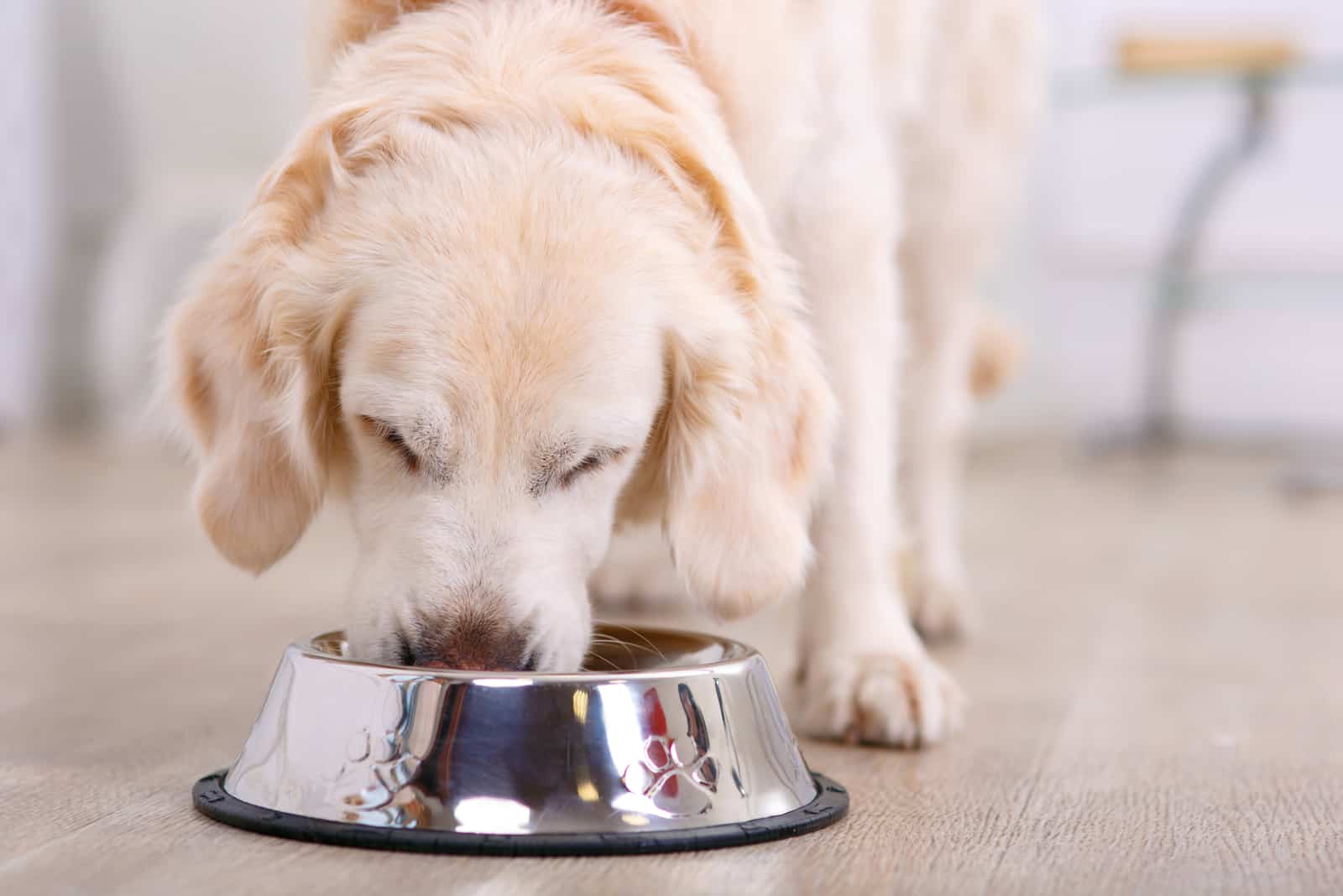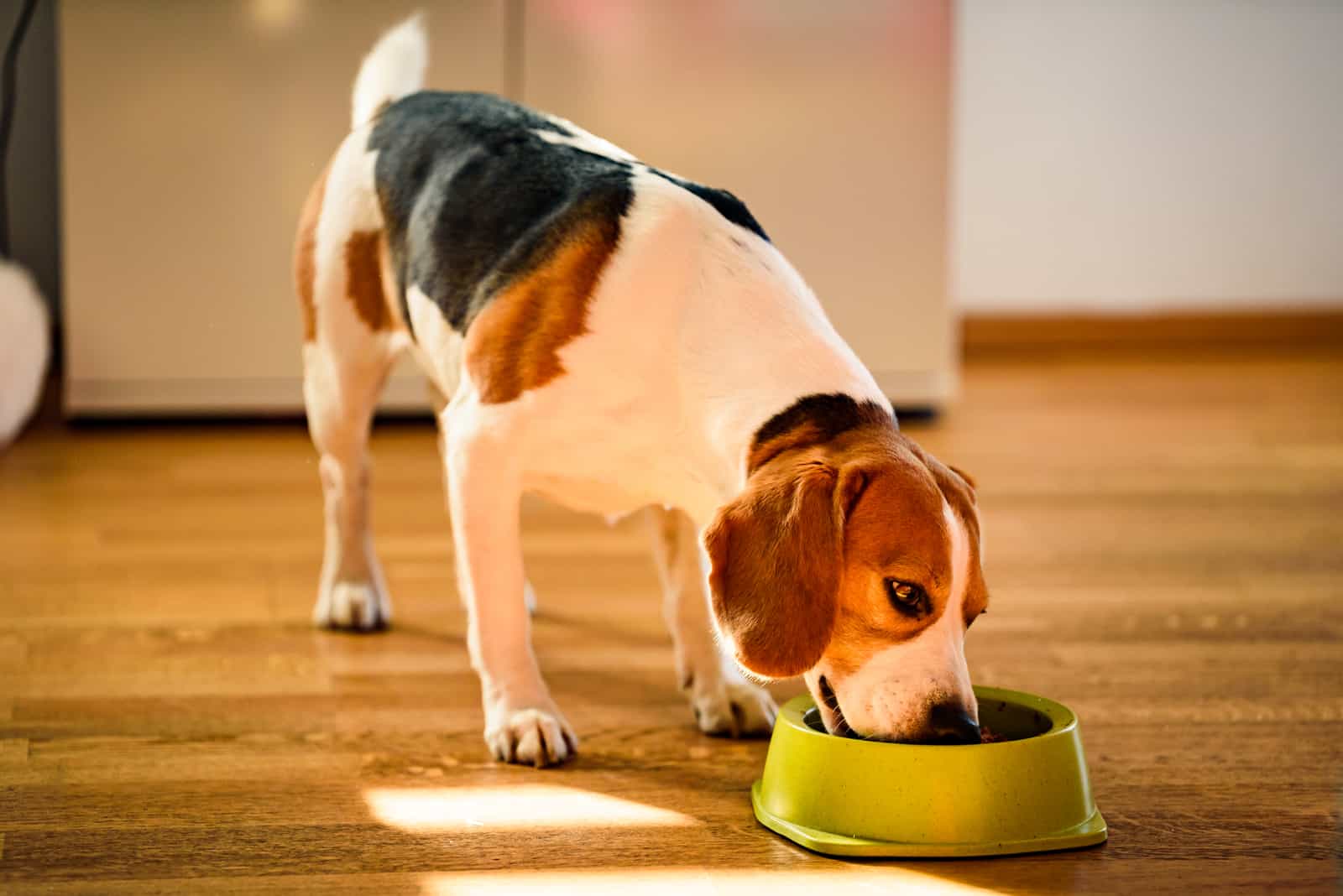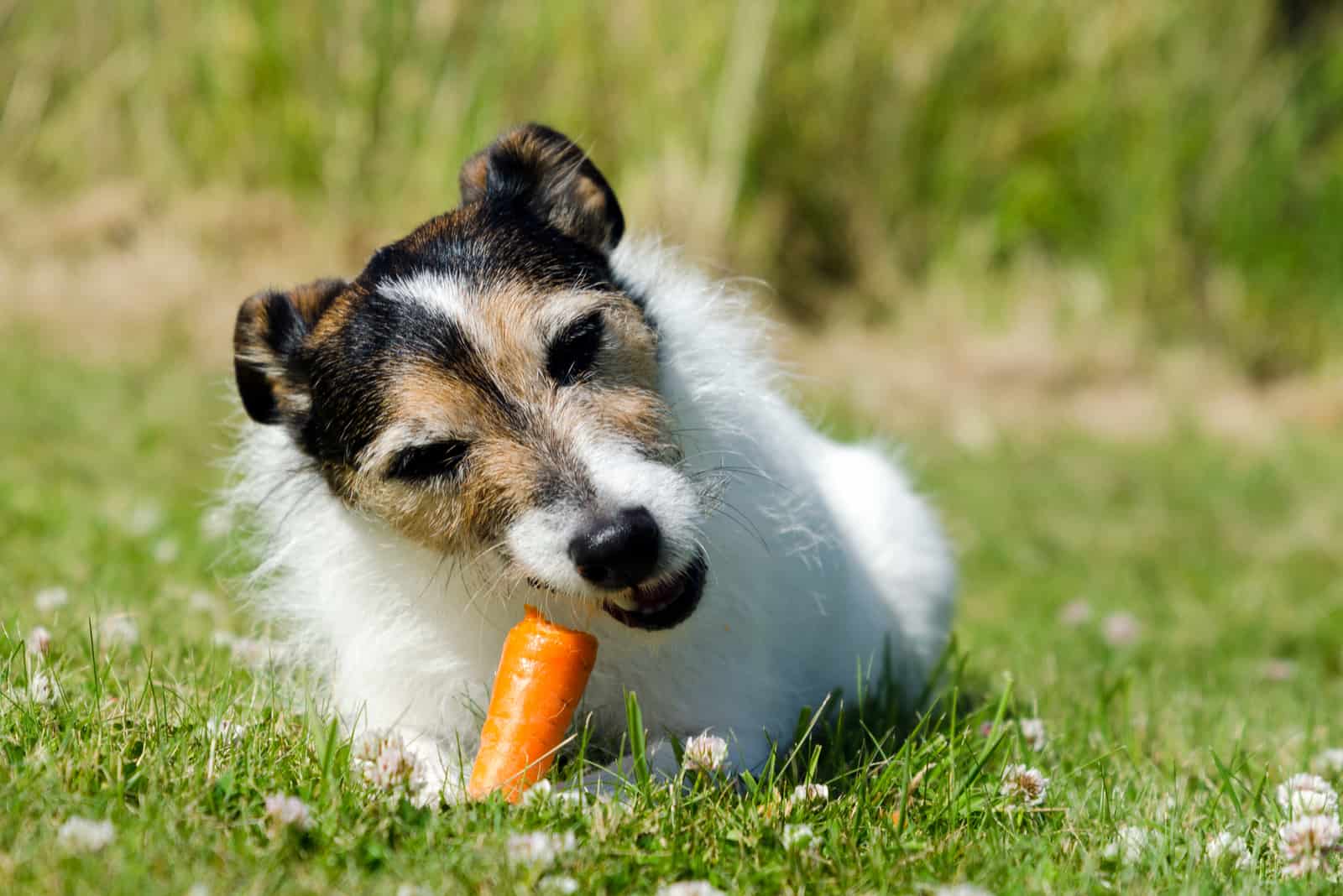Why is my dog’s poop grainy is probably one of the questions you never thought you’d be asking!
Having a dog can be compared to having a baby for 10 to 15 years. Like babies, dogs can’t communicate their problems with words, so we try our best to catch other signs they give us and try to solve the problem. That’s where the poop checking comes in.
Poop can be one of the indicators of your dog’s overall health. It comes in a variety of shapes and colors. Some are perfectly normal while others can indicate that there might be a problem.
Asking yourself ˝Why is my dog’s poop grainy˝ can actually be beneficial to your dog.
Why Is My Dog’s Poop Grainy? 9 Common Causes
Unfortunately, some of the causes of graininess can indicate that some health problems are present, while other reasons are transient and can easily be corrected without the help of a vet. As dog owners, our dog’s health is the main concern. One grainy poop isn’t a big deal, because changes in fecal quality are normal due to what the dog eats. A couple of days of poop being grainy should make you raise an eyebrow. Anything longer is unfortunately an indicator of a potentially serious problem.
Whatever the cause may be, our recommendation is not to make a diagnosis by yourself but to visit the vet and get a professional check-up.
1. Lack Of Water Intake: Dehydration
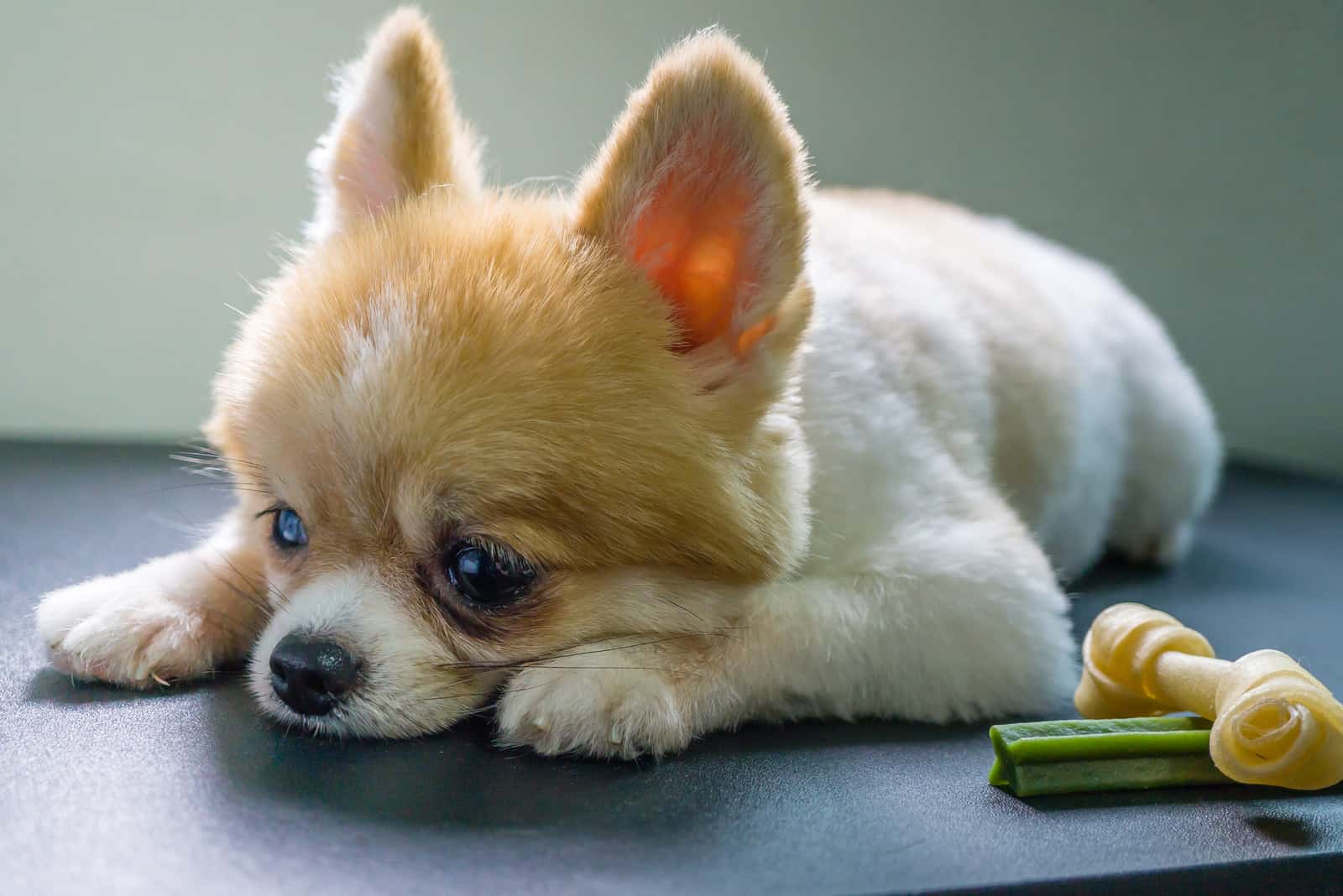
Grainy poop is an indicator that your dog may be in the beginning phases of dehydration. Water is used for breaking down food particles and forming healthy excretions. The lack of water slows down those processes and makes your dog’s stool harder.
The good thing when seeing grainy poop is that your dog isn’t severely dehydrated. Severe dehydration is often connected with constipation, which is just as bad as hard stools.
Dehydration can also cause kidney problems, so if you see grainy poop and suspect your dog is getting dehydrated but still refuses to drink water regularly, call the vet as soon as possible.
2. Lack Of Exercise
Physical activity is connected with your dog’s bowel movements. Dogs that are lazier or older dogs that don’t move as much, can have slowly moving intestines.
Slow intestines cause feces to stay longer in a dog’s digestive tract. The longer poop stays in the intestines, the more water it loses causing poop to become grainy and even completely dry.
3. Allotriophagy Or Pica
This is just a more professional term for your dog’s strange food cravings. They start to crave foods that they aren’t allowed to consume. But there is something even more unusual when it comes to this phenomenon.
They start craving inedible objects that shouldn’t be in a dog’s diet whatsoever. Strange isn’t it? Some of the things are rocks, sand, plastic, drywall, paper, even other dogs’ poop, etc.
One thing you need to have in mind is that by eating hard things like rocks, your dog’s anal glands can be damaged, which can cause the extraction of mucous that can have a really bad smell.
Allotriophagy is considered a mystery as scientists haven’t found an exact link as to what causes it. The potential link is the quality of dog food and the right portioning of meals during the day.
If you are in doubt about the quality of your dog food, consult with your vet as they might give you a better alternative more suitable for your dog.
4. Low Fiber Intake
Nutrients like vitamins, calcium, proteins, and fats are usually brought up when talking about dog food, but fibers sometimes get neglected.
According to the American Kennel Club, food with high-quality fiber is obligatory for maintaining your dog’s overall health. Otherwise, your dog might end up with grainy poop.
Food companies for animals can be quite misleading sometimes and even make false claims. For instance, some dog food manufacturers use shredded paper while claiming that cellulose is present as one of the nutrients.
When it comes to puppies, low-fiber food is extra dangerous since puppies need all the nutrients, including fiber, to grow. Puppies can sometimes have the opposite reaction, and end up with a soft stool.
On average, adult dogs should have 2.5-4.5% of daily high-quality fiber intake, while puppy’s needs are slightly less, ranging from 2-4%.
5. Intestinal Parasites– Tapeworms
Intestinal parasites are a common cause of grainy poop. When talking about parasites, we must warn you that having a faint stomach doesn’t go to your advantage when you have a dog.
Tapeworms are the most common parasite that can cause grainy poop. They have an astonishing resemblance to grains – especially rice grains. Dogs consuming an infected host such as a flea is one of the ways that they can get tapeworms into their system. The most common type of tapeworm that can infect your dog is Dipylidium caninum.
Your dog is getting infected with tapeworms even after all the regular dewormers, clean and safe food, and keeping an eye that your dog doesn’t eat anything suspicious while taking a walk? This can be stressful. Fortunately, we have the answers to your problem. Fleas!
Fleas can transmit tapeworms to your dog. While you are being careful about the food your dog eats and whether deworming is helping at all, fleas are doing their damage.
Don’t feel bad, those little critters are truly hard to detect, let alone know if they carry tapeworms. A good anti-flea shampoo or flea repellant from your vet should do the trick.
Besides tapeworms, roundworms can also be responsible for grainy poop.
RELATED: The Ugly Truth: White Specks In Dog Poop
6. GI Tract (Gastrointestinal) Inflammation And Colitis
Inflammations of the gastrointestinal tract (gastroenteritis) and colon (colitis) can occur for many reasons – from food sensitivities, food allergies, and dietary thoughtlessness to pathogens.
If GI inflammation isn’t accompanied by other clinical symptoms, the grainy poop problem will be solved as soon as the inflammation is settled.
Dog foods that contain whole grains like oats, wheat, rice, and corn are in normal circumstances pretty easy for your dog to digest. With foods like these, you might notice grains from their food showing up in their poop.
Replacing that type of dog food with food that contains feweror no grains is the first step you can do to relieve your dog’s intestinal tract. A bland diet is desirable.
7. Digestion Issue
Lightly digested or undigested food could be causing your dog to have grainy poop. This can be caused when the digestive system is compromised by various factors, such as inflammatory bowel disease, bacterial overgrowths, food allergies, and sensitivities.
Digestion issues can be very alarming and need medical treatment. They can also lead to your dog pooping too often, which is a different problem in and of itself.
8. They Ate Grain
One of the causes of grainy poop that can relieve concerned dog owners is if their dog ate actual grain. Dogs are curious creatures, so if a pile of grain catches their eyes it will probably end up in their stomach and in the end in their poop.
Farm dogs are the ones that usually end up with grainy poop since they are surrounded by grains. When consuming cow or horse poop or feed, they may take inundigested grains.
Our advice is to monitor them for a couple of days so that their upset stomach can rest from all the grains.
9. External Body Conditions
External body conditions may be a cause of grainy poop if you have a dog with long hair, especially if it curls and is prone to matting. Grooming is also a factor in your pet’s health. If the buttock area isn’t properly groomed, sometimes poop can extract incorrectly so it comes out looking grainy.
A good bath, pair of scissors, and a brush will do the trick.
How To Prevent My Dog’s Poop From Becoming Grainy?
1. Probiotics
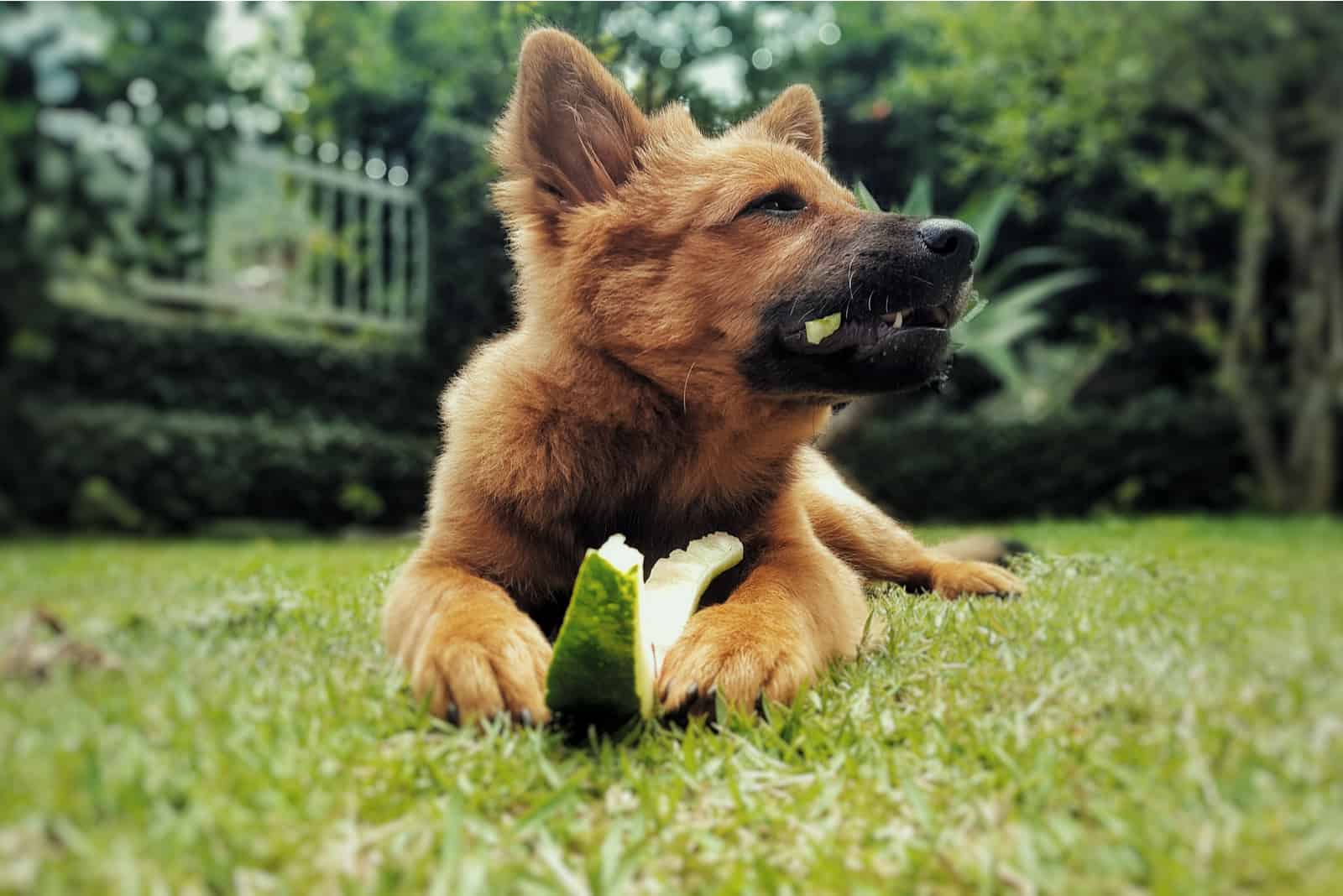
What are probiotics? They are beneficial live microorganisms (yeasts and bacteria) that live in the gut and contribute to better digestion.
There are various probiotic products for your dog that come in different forms – liquid, pills, and powder). The right probiotic should contain between 1 and 5 billion CFUs of good bacteria and yeasts of strains like Bifidobacterium animalis, Bacillus coagulans, Lactobacillus acidophilus being just some of them.
You can also offer them foods that are rich in probiotics, for example, fermented products like Greek yogurt, goat milk, and fermented vegetables.
Human probiotics aren’t suitable for dog consumption.
2. Regular Deworming Appointments
Just like probiotics products, there are plenty of commercial dewormers you can choose from, that also come in different forms – fluids, tablets, and chewable treats.
The most important thing is to schedule deworming appointments with your vet and keep the agreed appointments up to date. Some dewormers need to be applied monthly and others once every few months.
If you forgot one dose, give it as soon as you remember it.
3. Keep Your Dog Active
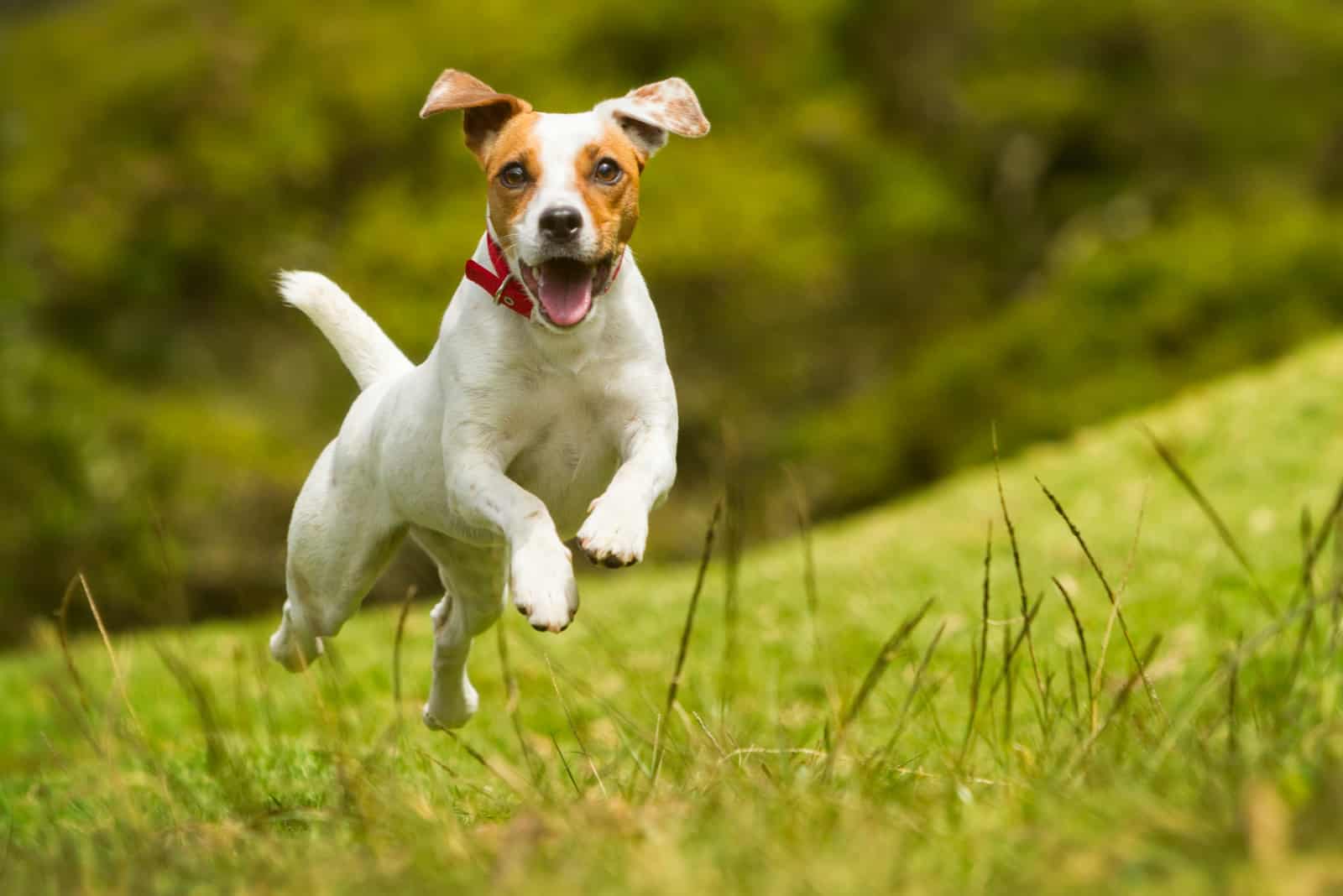
As we already mentioned, older dogs can be just a bit lazier, and lacking the proper activity level usually have slower intestines. To avoid this issue you need to make sure your dog is active.
The general rule for younger and healthy dogs is at least 2 outdoor activities. The duration depends on the breed, age, and health status, but 2 or 3 times, each lasting about an hour is good enough.
When it comes to older dogs you can’t do that much. Try to take them for 2 or 3 easy walks, not too far each time.
4. Water Intake
As mentioned, water is very important. Mildy dehydrated dogs can have grainy poop, so stimulating your dog’s water intake is important.
Place a few water bowls around the house, in places that can easily be accessed by a dog. For older dogs, slightlyt elevated places are more suitable.
You can take it up a notch by putting a bit of chicken or beef stock, juices from conserved fish, etc into the water to tempt your dog to drink more.
5. Proper Fiber Intake
We talked about probiotics, but now we are going to mention prebiotics. Don’t get confused, they sound similar but don’t exactly have the same effect.
Prebiotics are one way of providing your dog with the necessary fiber intake. Prebiotics are also good for balancing blood sugar and cholesterol, heart functions, etc.
If you are not comfortable giving your dog supplements, you can try giving them food that is filled with fiber, like broccoli, beans, pumpkin seeds, carrots, apples, etc.
Proper Way Of Taking A Stool Sample
Collecting stool is a way of finding out if your dog has any diseases like parvovirus, giardia, pancreatitis, tapeworms, etc. Your vet will test the sample you take.
The most important thing is to have a clean plastic bag and a clean plastic container with a lid. Preferably, putting gloves on can protect you from poo ending up on your hands.
Use the clean bag to collect the poo;don’t use sticks, rocks or anything that you are not sure is clean enough. Place it into the container and firmly close the lid. Hopefully you don’t have to collect loose stool, because this can get a bit tricky.
It should be stored in a cold place, like a fridge, until you take it to the vet.
Summing Up: Why Is My Dog’s Poop Grainy?
As we said at the beginning of the article, asking yourself the question: ˝Why is my dog’s poop grainy?˝ turned out to be quite beneficial considering all the causes and potential health scares that can it cause.
Grainy poop usually means something is wrong, but the causes are not all that scary and all of them can be treated, especially if caught on time.
Since you are reading this article we hope that your dog isn’t in distress and that you have found some comfort in what you read. Please don’t let terms like tapeworms, inflammation, etc. scare you.
We are sure that you reacted immediately and that your dog will be as good as new in no time.

